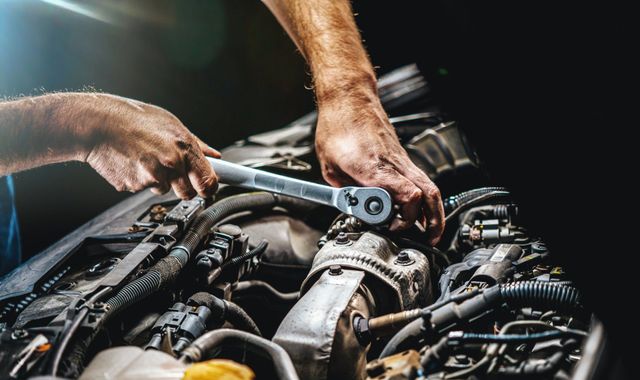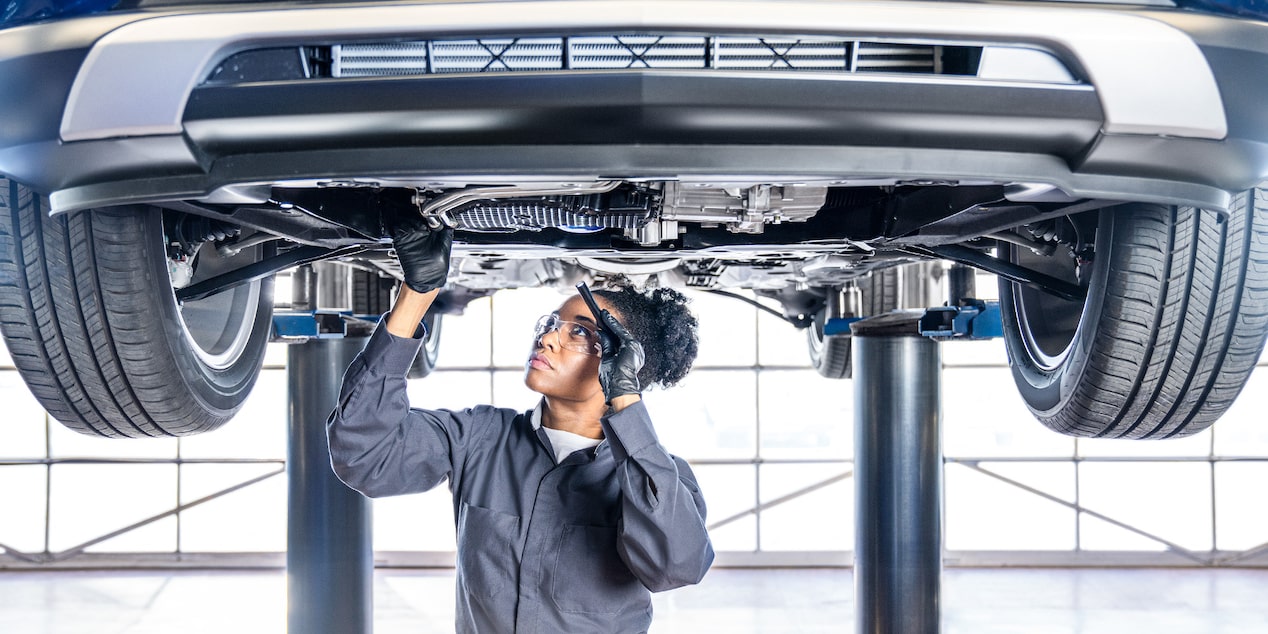All Categories
Featured
When your vehicle overheats, it can really feel like a major emergency situation, yet staying calm and adhering to the ideal steps can avoid major engine damage and assistance obtain you back when driving securely. In this post, we'll discover what to do if your cars and truck overheats and use preventative ideas to reduce the risk of overheating in the future.
If Your Automobile Overheats,What to Do. Pull Over to a Safe Area The first and most crucial action if your automobile begins to overheat is to draw over to a risk-free spot asap. Transform on your threat lights and lead your vehicle to the shoulder or into a parking area. Keeping your car running while it's overheated can trigger extreme damages to the engine, so it's important to shut the engine off as soon as possible.
Allow the Engine Cool Off Once you've safely quit, permit the engine to cool off. You ought to never attempt to open up the radiator cap while the engine is still warm, as the launch of heavy steam or hot coolant can trigger burns. Wait a minimum of 15-20 minutes to allow the engine temperature to drop to a much safer level before continuing.
![]()
Check the Coolant Level After the engine has actually cooled, check the coolant levels by evaluating the storage tank or radiator. If it's reduced, leading it off with a combination of coolant and water (as defined by your vehicle's maker) Constantly make use of caution when opening the coolant reservoir, as stress might have accumulated.
Look for Visible Leakages While you await the engine to cool down, aesthetically inspect the radiator, pipes, and coolant tank for any type of visible leaks or splits. A leaking radiator or tube is a typical reason for overheating. It's far better to call a tow solution than threat driving better and creating added damages. if you discover a substantial leak.
Reactivate the Engine After permitting the engine to cool down and ensuring the coolant is covered off, start the engine and monitor the temperature level scale. If the temperature level continues to climb swiftly, it's finest to close the engine off and ask for roadside assistance or a tow to the local technician.
![]()
How to stop Getting Too Hot in the Future. Frequently Inspect Coolant Degrees Among the easiest methods to avoid overheating is by maintaining the appropriate degree of coolant. In time, coolant can evaporate, so routinely inspect the coolant degrees in the reservoir. Low coolant degrees can cause the engine to overheat rapidly, so leading it off as needed.
Evaluate the Radiator The radiator plays a crucial role in maintaining the engine cool. Periodically inspect the radiator for any type of clogs, dirt, or particles that can block air flow. If you discover any signs of damage, such as rust or leaks, have it repaired or replaced as soon as possible.
Change the Thermostat and Water Pump A malfunctioning thermostat or water pump is an usual cause of overheating. The thermostat manages the flow of coolant, while the water pump flows it with the engine. If either part is malfunctioning, it can avoid appropriate cooling. When necessary., have your mechanic check these components on a regular basis and replace them.
Flush the Air conditioning System Over time, coolant can deteriorate and come to be inadequate, causing a build-up of debris in the system. Flushing the cooling system every 30,000 miles, or as suggested in your vehicle's guidebook, aids to remove any type of sludge or accumulation and makes certain the cooling system is operating appropriately.
Monitor the Problem of the Tubes The tubes in your automobile's cooling system can wear out or split over time. Evaluate the tubes for any kind of signs of wear, such as protruding, splits, or leakages, and replace them if needed. Avoiding coolant leakages can go a lengthy method in avoiding overheating.
![]()
Drive Properly Hostile driving, such as increasing swiftly or driving at broadband, puts extra stress on your engine and its cooling system. Try to drive at moderate speeds, particularly on warm days or when driving on high slopes, to minimize the chances of getting too hot.
Prevent Overwhelming Your Vehicle Lugging extreme weight in your car places anxiety on the engine and air conditioning system. Constantly bear in mind your lorry's weight limitation, particularly if you're carrying heavy lots, towing a trailer, or driving cross countries in hot climate.
Verdict. An overheating vehicle can be a frightening experience, yet knowing exactly how to react and prevent it can save you time, money, and possible engine damages. Constantly examine your coolant degrees, examine vital parts like the radiator, thermostat, and pipes, and follow a regular upkeep routine. By remaining on top of your automobile's cooling system, you can lower the danger of overheating and enjoy a smoother, more secure driving experience.
If Your Automobile Overheats,What to Do. Pull Over to a Safe Area The first and most crucial action if your automobile begins to overheat is to draw over to a risk-free spot asap. Transform on your threat lights and lead your vehicle to the shoulder or into a parking area. Keeping your car running while it's overheated can trigger extreme damages to the engine, so it's important to shut the engine off as soon as possible.
Allow the Engine Cool Off Once you've safely quit, permit the engine to cool off. You ought to never attempt to open up the radiator cap while the engine is still warm, as the launch of heavy steam or hot coolant can trigger burns. Wait a minimum of 15-20 minutes to allow the engine temperature to drop to a much safer level before continuing.

Check the Coolant Level After the engine has actually cooled, check the coolant levels by evaluating the storage tank or radiator. If it's reduced, leading it off with a combination of coolant and water (as defined by your vehicle's maker) Constantly make use of caution when opening the coolant reservoir, as stress might have accumulated.
Look for Visible Leakages While you await the engine to cool down, aesthetically inspect the radiator, pipes, and coolant tank for any type of visible leaks or splits. A leaking radiator or tube is a typical reason for overheating. It's far better to call a tow solution than threat driving better and creating added damages. if you discover a substantial leak.
Reactivate the Engine After permitting the engine to cool down and ensuring the coolant is covered off, start the engine and monitor the temperature level scale. If the temperature level continues to climb swiftly, it's finest to close the engine off and ask for roadside assistance or a tow to the local technician.

How to stop Getting Too Hot in the Future. Frequently Inspect Coolant Degrees Among the easiest methods to avoid overheating is by maintaining the appropriate degree of coolant. In time, coolant can evaporate, so routinely inspect the coolant degrees in the reservoir. Low coolant degrees can cause the engine to overheat rapidly, so leading it off as needed.
Evaluate the Radiator The radiator plays a crucial role in maintaining the engine cool. Periodically inspect the radiator for any type of clogs, dirt, or particles that can block air flow. If you discover any signs of damage, such as rust or leaks, have it repaired or replaced as soon as possible.
Change the Thermostat and Water Pump A malfunctioning thermostat or water pump is an usual cause of overheating. The thermostat manages the flow of coolant, while the water pump flows it with the engine. If either part is malfunctioning, it can avoid appropriate cooling. When necessary., have your mechanic check these components on a regular basis and replace them.
Flush the Air conditioning System Over time, coolant can deteriorate and come to be inadequate, causing a build-up of debris in the system. Flushing the cooling system every 30,000 miles, or as suggested in your vehicle's guidebook, aids to remove any type of sludge or accumulation and makes certain the cooling system is operating appropriately.
Monitor the Problem of the Tubes The tubes in your automobile's cooling system can wear out or split over time. Evaluate the tubes for any kind of signs of wear, such as protruding, splits, or leakages, and replace them if needed. Avoiding coolant leakages can go a lengthy method in avoiding overheating.

Drive Properly Hostile driving, such as increasing swiftly or driving at broadband, puts extra stress on your engine and its cooling system. Try to drive at moderate speeds, particularly on warm days or when driving on high slopes, to minimize the chances of getting too hot.
Prevent Overwhelming Your Vehicle Lugging extreme weight in your car places anxiety on the engine and air conditioning system. Constantly bear in mind your lorry's weight limitation, particularly if you're carrying heavy lots, towing a trailer, or driving cross countries in hot climate.
Verdict. An overheating vehicle can be a frightening experience, yet knowing exactly how to react and prevent it can save you time, money, and possible engine damages. Constantly examine your coolant degrees, examine vital parts like the radiator, thermostat, and pipes, and follow a regular upkeep routine. By remaining on top of your automobile's cooling system, you can lower the danger of overheating and enjoy a smoother, more secure driving experience.
Latest Posts
Find the Top Auto Repair Deals in Montclare, Chicago
Published May 24, 25
1 min read
Trustworthy Overhead Door Solutions for Houses and Businesses
Published May 23, 25
1 min read
Improve Your Residential Property with Overhead Door Systems
Published May 22, 25
1 min read